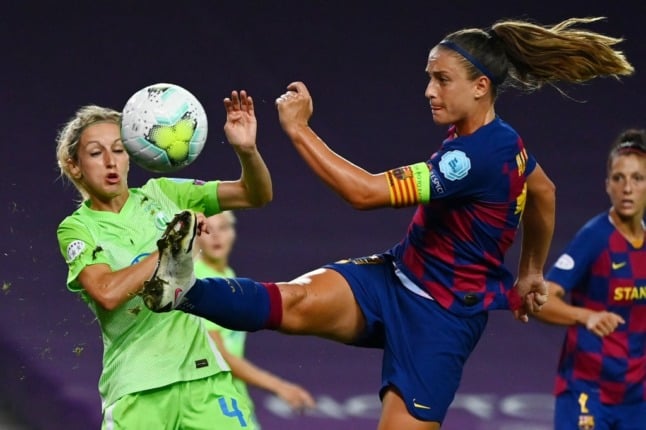According to the Berliner Verkehrsbetriebe (BVG), the one-day 'Frauenticket' ticket is the world's first women's ticket.
It is supposed to cost €5.50, so it's around 21 percent less than the normal day ticket valued at €7. The discount is being given because women in Germany earn an average of 21 percent less than men, the BVG stated as justification.
While both men and women can purchase the ticket, a man would be treated as a “Schwarzfahrer” – or fare dodger – if caught using a woman's ticket, says BVG.
Those who buy an annual ticket on Monday receive the biggest savings: for €601.15 instead of €761, passengers can travel by bus and train across the capital city for a year. That means savings of just under €160.
For the annual ticket, the machine spits out a ticket that can be redeemed for the ticket in the customer centre. Payment is only possible with a card.
Critics have accused the BVG of injustice. “Of course the action is unfair,” says spokeswoman Petra Nelken. “But it's just as unfair not to pay women equally.”
SEE ALSO: Among Berlin's hard-up artists, gender pay gap is 'hidden scandal': study

The text on the ticket machine on Monday reads “Get your 21% women's ticket discount”. Photo: DPA
Behind Equal Pay Day
The “Equal Pay Day” marks the time until women have to work to earn the same income as men last year. If the lower pay is converted into days – 77 days – women work unpaid until March 18th this year.
According to the Federal Statistical Office, there was an average pay gap of 21 percent across all sectors and occupations. Women earn less because they are more likely to work part-time and in low-paid jobs – for example in the social sector.
When the same jobs are compared, women earn six percent less than men for the same work in Germany as of 2014.
SEE ALSO: Wage gap payback: Why this Berlin bike shop has slashed their prices for women
In Berlin in 2018, women earned about 14 percent less than men. According to the Berlin-Brandenburg Statistical Office, the gap has increased by one percentage point compared to last year.
In Brandenburg, on the other hand, the wage gap was only two percent.
To mark the day on Monday, there will also be several events centred on activism in Berlin and Brandenburg.
Various groups including the German Federation of Trade Unions (DGB) and the German Women's Council have called for a rally, which is taking place Monday morning on Pariser Platz under the motto “Right to More”.
SEE ALSO: In eastern Germany, the gender pay gap favours women




 Please whitelist us to continue reading.
Please whitelist us to continue reading.
Member comments